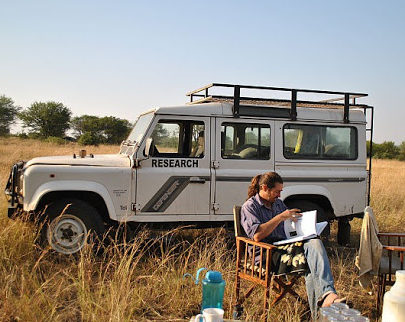My research investigates patterns in the functional diversity and distribution of both large mammal herbivores and grasses across the African continent. Understanding how the life history strategies of organisms are distributed across environments enables the exploration of the processes that generate diversity, identification of areas where alternate ecosystem states are possible, and the prediction of how communities are likely to shift in response to climate change.
Anthropogenic pressures have caused massive shifts in the functional composition of large mammal herbivore communities across sub-Saharan Africa, with important consequences for plant communities that support them. By and large, African herbivore communities now comprise livestock, with a greatly reduced functional diversity relative to the wildlife communities they replaced. Associated with this are both large increases and decreases in herbivore biomass relative to historical herbivore communities – for example, surface water provision has greatly increased the potential for arid regions to support herbivores, and allowed for the establishment of sedentary populations. This has greatly increased the likelihood of areas becoming overgrazed, with lower and more variable herbivore populations: this has important negative consequences for the economic stability and resilience to shocks of many African pastoral communities. In wetter grassy ecosystems, fire is likely to be more prevalent than in the past, due to the extirpation of large-bodied grazers and the lack of analogues among livestock – with important consequences for filtering the plant communities that now dominate in these regions. The feedbacks between plants and herbivores, and the changes in environmental conditions that drive them, means that societies that rely heavily on natural resource face an uncertain future across the continent.

